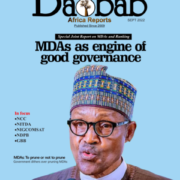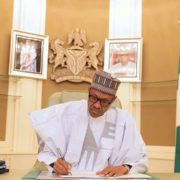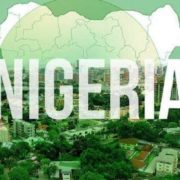By Moses Braimah
The air in Nigeria is thick, not just with the Harmattan dust, but with a palpable sense of impending rupture. It is a peculiar kind of national anxiety, a feeling that the very threads holding this sprawling, magnificent, and maddening country together are being pulled taut. To take a sober look at Nigeria today is to witness a nation engaged in a form of economic and social self-immolation, a slow-motion unravelling that threatens to consume all in its path.
Let us, with the cold eye of an analyst and the fiery heart of a patriot, survey the state of the nation.
Firstly, let’s look at the economic chokehold as it relates to inflation and the debt trap. The numbers tell a story of profound distress. Headline inflation has soared, a figure that is not merely a statistic but a silent tax on the dreams of millions. The price of a loaf of bread, a measure of stability in any society, has become a luxury metric.
Government continues to borrow
And yet, the government continues to borrow, adding to a debt stock that now consumes a crippling portion of our revenue just to service. We are not investing in the future; we are mortgaging it to pay for the past. It is a Ponzi scheme of epic proportions, and the ordinary Nigerian is the mark.
Next, it’s the taxman that cometh again. Just as the citizenry gasps for air, the government’s response is to add more weight. The new petrol tax, a fresh levy on a commodity that is the lifeblood of our economy, is a masterclass in tone-deaf policy.
It will trigger a chain reaction of price increases on everything from food to transportation. And the proposed housing tax, slated for January 2026, feels less like a policy and more like a threat. Where is the social contract? Where is the government mass housing? To tax a people you have failed to serve is not governance; it is extraction.
Nigeria’s unending insecurity issues & broken education system
Now, let’s touch on the insecurity challenge and the Finnish government verdict. Bandits and kidnappers still rule the highways and various communities of the northwest and middle belt as feudal lords. The spectre of “unknown gunmen” still haunts the southeast. Yet, a sliver of light has pierced through, from an unexpected quarter: Finland.
The conviction of Simeon Ekpa on terrorism charges and his six-year sentence, secured remarkably swiftly with the cooperation of Nigerian security agencies, is a watershed. It proves that with determined international collaboration, the purveyors of violence can be held to account. This is not the end of the problem, but it is a crucial, precedent-setting blow. The question now is: can Nigeria replicate this efficacy within its own borders?
What about the broken ladders of our education system, lecturers strike and the reward imbalance. At home, our very foundations are crumbling. The Academic Staff Union of Universities (ASUU) is warming up for another strike, a familiar dance of dysfunction that will once again betray a generation, despite the seemingly shortage of lecturers who have mostly left the system for green pastures. The proposed new education system, with its focus on Technical and Vocational Education and Training (TVET), remains a good idea born into a bad reality, unlikely to thrive without genuine investment.
A nation of festering grievances and glaring imbalance
This institutional neglect creates a bitter dissonance when other achievements are celebrated. The President’s reward for the triumphant female football and basketball teams was indeed a welcome and popular act. But it inadvertently highlighted a festering grievance: the glaring imbalance in how we honour our heroes.
Why do athletic victories, however glorious, trigger immediate state recognition and lavish cash prizes, while towering academic feats, Nobel laureates, groundbreaking scientists, literary giants, are met with a muted, bureaucratic applause? The state’s energy and vigour appear selective, prioritising the fleeting euphoria of sport over the foundational, nation-building power of intellect. This perceived inequity is a poison to the morale of our brightest minds.
Perceived leadership disconnect at the helm? As the country burned, the President chose to take a 10-day leave… abroad. The symbolism was as damning as it was obvious. In the face of multiple existential crises, the message sent was one of remove, not resolve. It is a lapse in political judgement so profound it questions the very connection between the led and their leaders.
Nigeria and her incredible resilience
The picture is complex, but the path is clear. Nigeria has always been a nation of incredible resilience. The question is not whether Nigerians can endure more suffering, history proves they can. The question is whether the current structures of power are capable of the radical, sincere, and purposeful transformation required to stop the slide. The Ekpa verdict shows that progress is possible with focus and collaboration. The athlete rewards show that the government can act decisively.
But can those in power and position of influence apply the same resolve to the unglamorous, deep-seated crises of economy, education, and security. We need more than sporadic gestures; we need a fundamental reorientation of governance. We need more than policy adjustments; we need a fundamental reorientation of governance. We need to secure our people, stabilise our economy, and invest in the ladders of escape, education and healthcare. The nation is watching, and the clock is ticking. The time for excuses is over. The alternative is unthinkable.


- Braimah is an advocate for good governance and sustainable progress




















